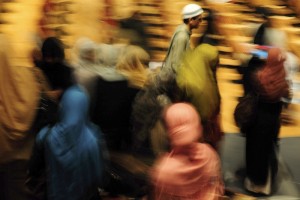De-Radicalization: Time for serious actions
Novembre 27, 2016

Amer Al Sabaileh
Director of Security Languages - Senior political and security analyst
DE-radicalization is at the top of the agenda for stakeholders, donors and the Jordanian state. We are seeing multiple projects, speeches, conferences and workshops trying to address the issue and find a workable solution. While theories and proposals are to be encouraged, it is important that we begin to implement and trial some of these and move from theory to application..
Deradicalization is a process of change, and any such process should start with a comprehensive understanding of the underlying issues and clear objectives and outcomes. We must understand why it is that deradicalization is required. The level of radicalism that we are facing today is the result of a process that has been progressing for a long time, one that, on the whole, we have been blind to. In order to learn from the past and move forward, we have to be honest about all aspects of the issue.
We must understand and acknowledge that this is a complex issue and we need innovative thinking and people with a broad range of expertise. The issue is not just religious, there are cultural and economic aspects, and we need to bring people together, make them feel connected to each other and society to appreciate their existence and their neighbors. We must promote dignity and respect while reintegrating people to participate in building their own future and become productive for society.
We cannot continue to theorize, we need to intervene on the ground with practical measures. From here, concrete projects are more important than debates and conference. When we identify places with high levels of radicalization through polls surveys and studies, we must intervene. Playgrounds, parks, cultural plans, and programs that promote and enable artistic endeavours such as drawing, music, theater and cinemas are great ways to engage otherwise marginalized populations. We need microeconomic projects to intervene and break the cycle of radicalization. Improving quality of life, giving them hope for the future can be achieved by engaging them in art and culture. This is what we need to engage and involve people in creating this change.
We need to stop relying so much on the narrative that moderate doctrines can address radical Islam. Real change will come from cultural change, enhancing the concepts of pluralism, diversity and respect for others with real and practical programs on the ground. We can only face radicalism by adopting a comprehensive multilateral strategy.
The role of the state is essential. The absence of an active role in providing services and social justice is part of what has fostered the evolution of radical thought. We have also failed to accept the signs of increasing radicalism, but we must act. When a cinema in Zarqa was targeted by terrorists back in 1993, we responded with security measures, but ignored the underlying cause of the problem. That we didn’t protect cinemas and other cultural institutions means the terrorists have already won. The more that cultural institutions are targeted, the less people will attend them, which is exactly what we have seen.
The more prevaricate and pontificate, the more difficult and the more embedded the issue becomes. As radicalism expands and recruits more of our society, the more we face the risk that they will infiltrate all aspects of society, civilian and military. We must act before that happens. The time for talking and theorizing is over. We must face this scourge with action and we must do it now.
Dr. Amer Al Sabaileh
What's Your Reaction?
Excited
0
Happy
0
In Love
0
Not Sure
0
Silly
0
Amer Al Sabaileh
Director of Security Languages - Senior political and security analyst

